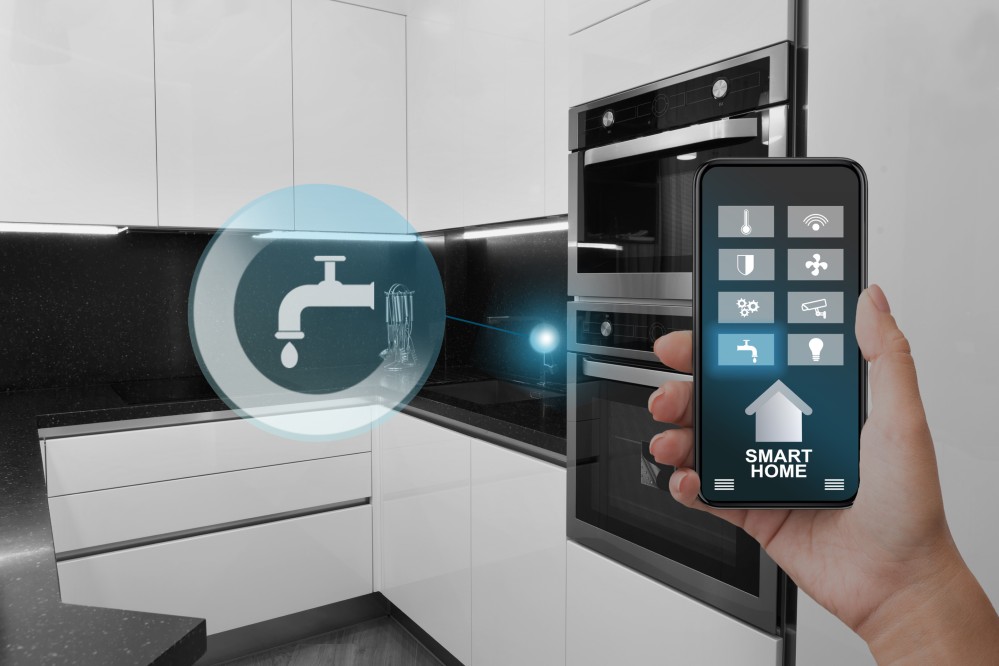
Smart Irrigation for Gardens: Tech Tips for Water Efficiency
Share
The concept of smart irrigation for gardens is revolutionizing the way tech-savvy individuals approach garden management. At the intersection of technology and horticulture, smart irrigation systems offer promising solutions for optimizing water usage and enhancing garden health. As tech professionals and enthusiasts, understanding the nuances and benefits of these systems can empower us to make informed decisions about garden care.

Understanding Smart Irrigation Technology
Smart irrigation systems are designed to automate and optimize watering schedules based on real-time data. These systems utilize a variety of sensors, weather forecasts, and soil moisture data to determine the precise amount of water needed for your garden. By integrating these technologies, smart irrigation minimizes water waste and promotes sustainable gardening practices.
For instance, some systems connect to weather forecasting services, adjusting their schedules based on upcoming rainfall. Others employ soil moisture sensors that ensure plants receive water only when necessary, preventing overwatering and conserving resources. This is particularly beneficial in regions facing water shortages or those advocating for eco-friendly water-saving habits.
Benefits of Smart Irrigation Systems
Smart irrigation systems offer numerous advantages, particularly for tech enthusiasts keen on integrating technology into everyday life. The key benefits include:
Water Conservation
By using data-driven insights, smart irrigation significantly reduces water usage by ensuring gardens receive the right amount of water at the right time. This conservation effort aligns well with water-saving techniques that are vital in today's environmentally conscious world.
Cost Efficiency
With optimized water usage, homeowners can expect a reduction in water bills. The initial investment in smart irrigation technology can be offset by long-term savings, making it a cost-effective solution for tech-savvy gardeners.
Convenience and Automation
For tech professionals with busy schedules, the automation features of smart irrigation systems offer unparalleled convenience. With smartphone apps and remote access, managing garden water needs becomes a seamless, fuss-free task.
Implementing Smart Irrigation in Your Garden
Transitioning to a smart irrigation system involves several steps, from selecting the right technology to installation and monitoring. Heres a simple guide:
Choose the Right System
Consider factors such as garden size, climate, and specific plant needs when selecting a smart irrigation system. Researching and comparing different technologies can help you find a system tailored to your requirements.
Installation and Setup
Many smart irrigation systems are designed for easy installation, often requiring minimal professional assistance. However, understanding the system's features and how to integrate them into your garden is crucial for effective operation.
Monitoring and Adjustments
Once installed, regularly monitor the system to ensure it functions optimally. Make necessary adjustments based on seasonal changes and specific garden needs to maximize efficiency.
Future of Smart Irrigation
The future of smart irrigation for gardens looks promising, with ongoing advancements in technology. Innovations such as AI-powered analytics and machine learning are expected to enhance the precision and adaptability of these systems. As sustainable water use becomes increasingly important, smart irrigation will likely play a pivotal role in shaping eco-friendly gardening practices.
Furthermore, as technology continues to evolve, we can anticipate more seamless integration with other smart home systems, offering a cohesive and comprehensive approach to home automation.
Conclusion
Smart irrigation systems represent a significant step forward in garden management, combining technology with environmental stewardship. For tech professionals and enthusiasts, embracing this innovation not only enhances garden health but also contributes to broader efforts in water conservation and sustainability. By staying informed and proactive, we can harness technology to create thriving gardens while minimizing our ecological footprint.

FAQ
What is smart irrigation for gardens?
Smart irrigation systems use technology to optimize watering schedules and conserve water by utilizing real-time data such as weather forecasts and soil moisture levels.
How does a smart irrigation system save water?
These systems adjust watering based on environmental data, ensuring that gardens receive adequate water without excess, thereby reducing waste and promoting conservation.
Can smart irrigation systems be integrated with other smart home technologies?
Yes, many smart irrigation systems can be integrated with broader smart home platforms, allowing for cohesive management of home automation systems.
